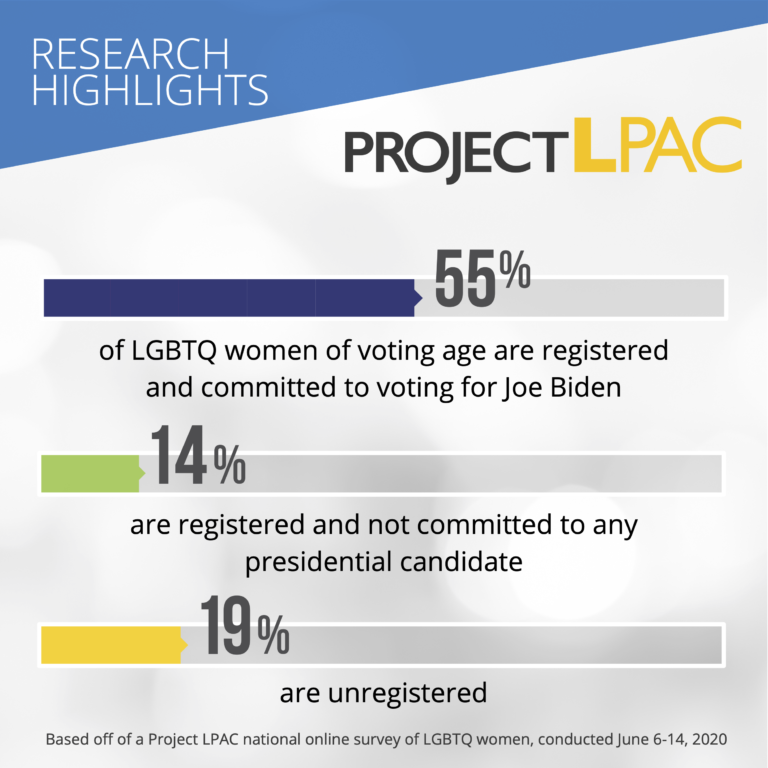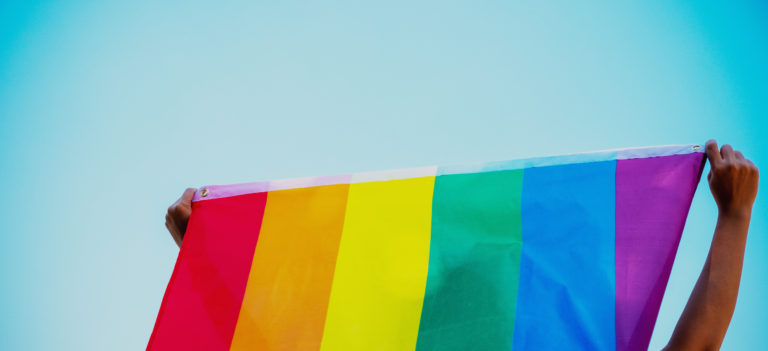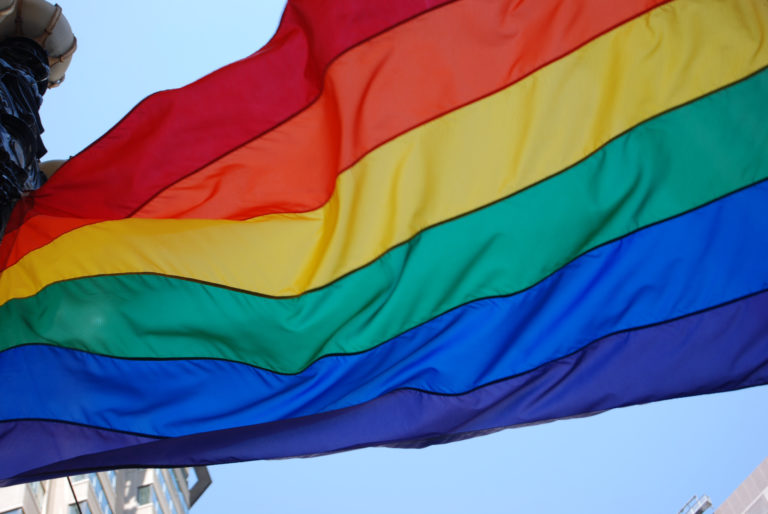Last year, Project LPAC’s foundational research on LGBTQ women’s civic engagement defined the group as…
Shaping the Future: How Gen Z and Millennial LGBTQ Women Can Influence the 2024 Election
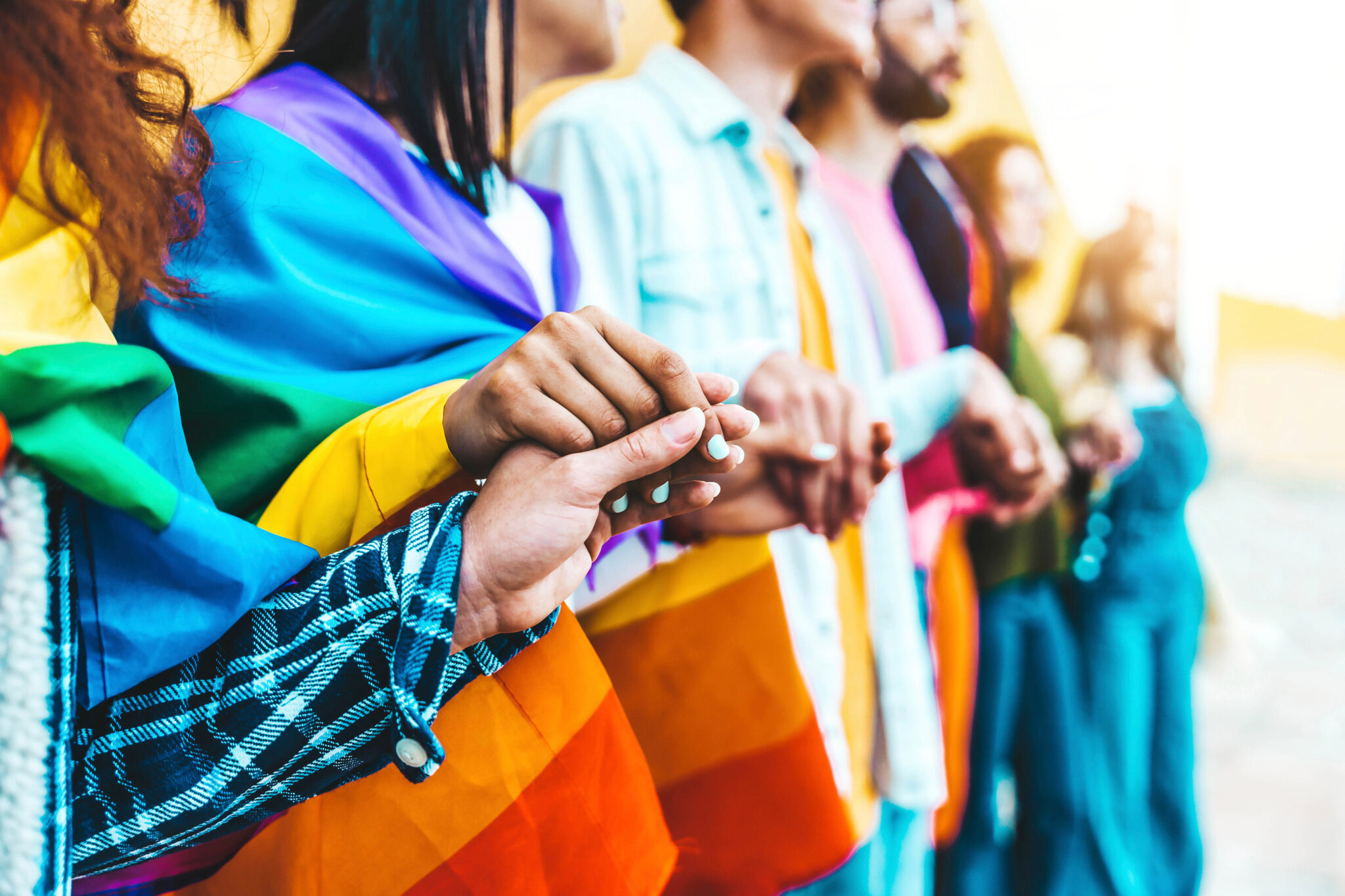
The 2024 election cycle is already ramping up, with Presidential candidates making the rounds in early primary states and would-be Members of Congress launching campaigns. Gen Z and Millennial voters will play an important role in the 2024 election outcomes, when these younger voters will comprise a larger part of the electorate than Baby Boomers. Given the increasing importance of this cohort, this year LPAC Action Network sponsored new polling to look at an under-studied subset of young people – LGBTQ women.
The nationwide poll, conducted with Lake Research Partners, looked broadly at how LGBTQ women aged 18-35 participate in democracy. The respondents, all of whom were adults aged 18-35, included a base sample of 800 LGBTQ women and oversamples of 50 transgender women, 400 adults excluding LGBTQ women, and 100 straight women of color. It was in the field from May 15-29, 2023, and conducted online.
The results from this research are striking. Gen Z and Millennial LGBTQ women are incredibly engaged on progressive issues and are one of the most liberal demographic groups in the country. Despite caring deeply about issues, and being registered to vote at similar levels, they are not more likely to be motivated to vote compared to their straight peers.
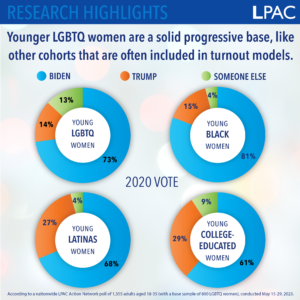
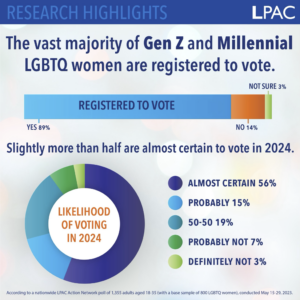
Some highlights from the project:
- Younger LGBTQ women are a growing share of the electorate and overwhelmingly favor Democratic candidates. In 2020, they voted for Joe Biden by a 59% margin – greater than Latinas, college-educated women, and unmarried women of the same age.
- Younger LGBTQ women are strongly committed to progressive change on issues like racism, abortion, and gun control.
- Younger LGBTQ women are not being communicated with. 61% strongly agree that older generations don’t prioritize the issues that matter to young generations, compared to just 32% of non-LGBTQ women.
- Gen Z and Millennial LGBTQ women are concerned about abortion access. About 3-in-4 younger LGBTQ women are very concerned that abortion services will be further restricted, this is a 30-point gap with all adults excluding LGBTQ women and a 20-point gap with straight women.
- While issues matter, political personalities and process do not matter to this cohort. Only 36% say they are much more likely to vote for a candidate who talks about control of Congress, compared to more than 60% saying they are much more likely to vote for candidate who talk about healthcare costs, addressing racism, and abortion access.
- Social media, especially TikTok, is the primary media source that young LGBTQ women use most frequently for information. Less than 4% use cable news or print newspapers as a primary source for information.
These findings point to multiple opportunities for Gen-Z and Millenial LGBTQ women to become the focus of collaborations on issue advocacy, turnout plans for candidates, and voter registration efforts leading up to 2024.




